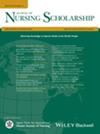Perceived Organizational Support for Strengths Use and Work-Related Flow: The Mediating Role of Self-Efficacy and Optimism
Abstract
Background
Work flow is critical for nurses due to the demanding nature of their profession, as it enhances stress resilience, engagement, and quality of care.
Aims
This study sought to examine the relationship between perceived organizational support for strengths use and work-related flow among nurses, and to explore the mediating roles of psychological capital components: self-efficacy, resilience, hope, and optimism.
Methods
This cross-sectional study, involving 607 nurses, was conducted in March 2024. Validated scales were employed to measure perceived organizational support for strengths use, psychological capital, and work-related flow. Data analysis was performed using SPSS version 25.0, along with the PROCESS macro for mediation analysis.
Results
The study revealed a significant positive relationship between perceived organizational support for strengths use, psychological capital, and work-related flow. Among the four psychological capital dimensions, only self-efficacy and optimism significantly mediated the relationship between perceived organizational support for strengths use and work-related flow.
Conclusion
These findings underscore the importance of fostering a strengths-based organizational climate and enhancing key psychological resources—particularly self-efficacy and optimism—to improve nurses' flow experiences at work.
Clinical Relevance
Enhancing perceived organizational support for strengths use can foster self-efficacy and optimism among nurses, thereby promoting work-related flow. By cultivating a strengths-based work environment and reinforcing key psychological resources, healthcare institutions can improve nurses' well-being, engagement, and ultimately the quality of patient care.




 求助内容:
求助内容: 应助结果提醒方式:
应助结果提醒方式:


